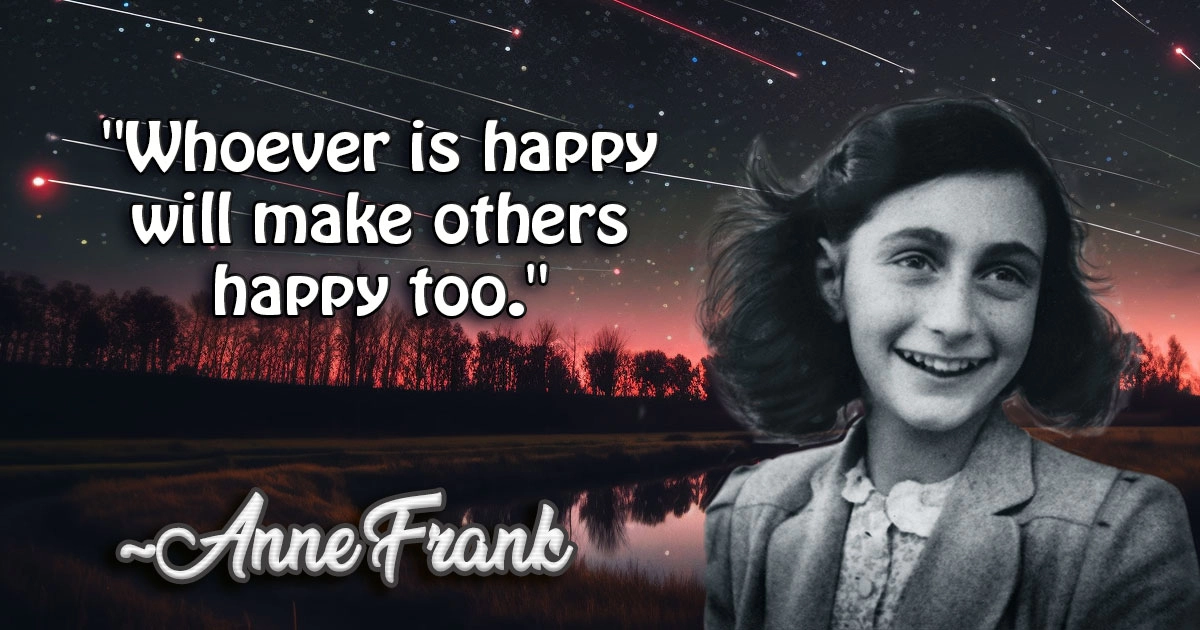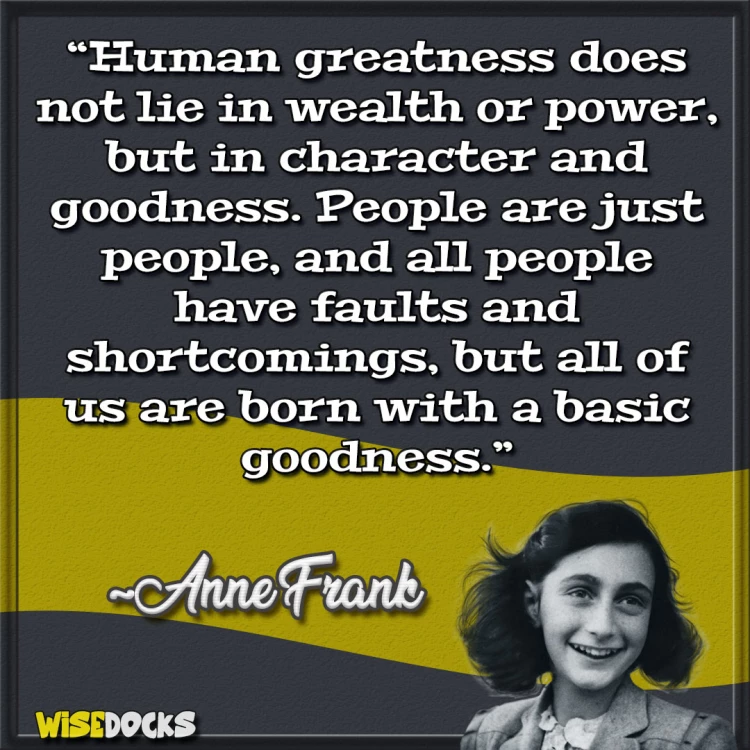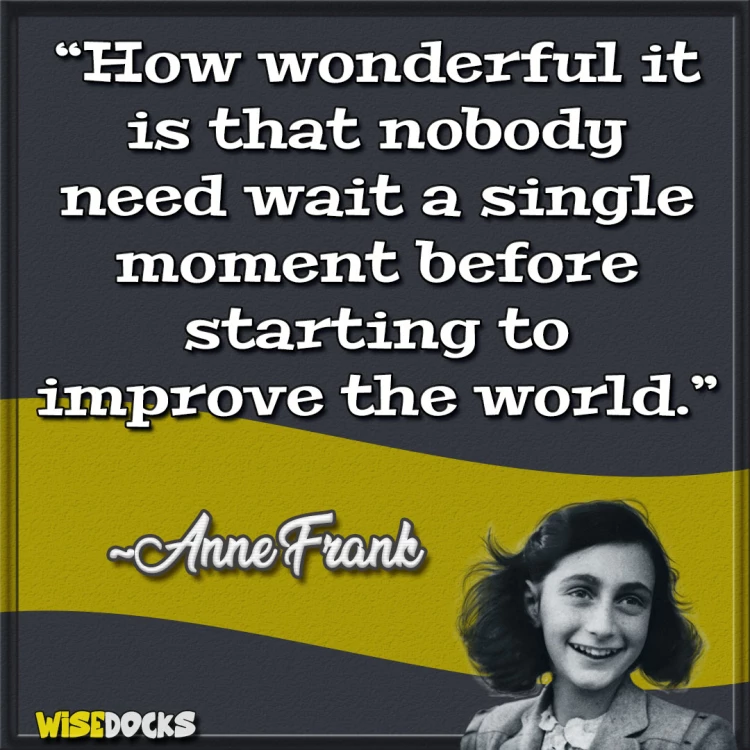Anne Frank: A Beacon of Hope Amidst Darkness

Anne Frank
Anne Frank was born on June 12, 1929, in Frankfurt, Germany, into a Jewish family. Her father, Otto Frank, was a businessman, and her mother, Edith, was a homemaker. Anne had an older sister, Margot, who was three years her senior. The Franks lived in a peaceful, middle-class neighborhood, but their lives were upended by the rise of Adolf Hitler and the Nazi Party. In 1933, when Anne was just four years old, the Nazis came to power, and anti-Semitic laws and persecution began to take root. Seeking safety, the Frank family moved to Amsterdam in the Netherlands, where Otto established a new business.

Life in Amsterdam was initially much better for the Franks. Anne attended the Montessori school, where she was a bright and lively student with many friends. However, in May 1940, the Nazis invaded the Netherlands, and the situation for Jews became increasingly dire. Anti-Jewish measures were swiftly implemented, stripping Jews of their rights and freedoms. Jews were forced to wear yellow stars, forbidden from public places, and subjected to random arrests and deportations.
As the persecution intensified, Otto Frank decided to take drastic measures to protect his family. On July 6, 1942, the Franks went into hiding in a secret annex behind Otto's office at 263 Prinsengracht. They were joined by another Jewish family, the Van Pels, and later by a dentist named Fritz Pfeffer. The entrance to the annex was concealed behind a movable bookcase, and the occupants had to remain silent during the day to avoid detection by the office workers below.

Life in the annex was a constant struggle for survival. The eight inhabitants lived in close quarters, with limited food and the ever-present fear of discovery. Anne, despite the harsh circumstances, continued to write in her beloved diary, which she had received as a gift for her 13th birthday just before going into hiding. She named her diary "Kitty" and confided her innermost thoughts, fears, and dreams to it. Writing became Anne's solace and escape, a way to cope with the oppressive reality around her.
Anne's diary entries reveal a keen intellect, a sharp sense of humor, and a profound insight into human nature. She wrote about the daily challenges of living in hiding, the tensions between the annex's inhabitants, and her longing for freedom. She also reflected on broader themes such as the nature of humanity, the horrors of war, and her aspirations for the future. Despite the darkness enveloping her world, Anne remained hopeful and believed in the goodness of people.
On August 4, 1944, the Franks' worst fears came true. The Gestapo, acting on an anonymous tip, raided the secret annex and arrested its occupants. They were first taken to the Westerbork transit camp and then deported to Auschwitz. The men and women were separated upon arrival, and Anne saw her father for the last time. Anne, Margot, and Edith endured the brutal conditions of Auschwitz until they were transferred to the Bergen-Belsen concentration camp in Germany.
Bergen-Belsen was a place of unimaginable suffering. The camp was overcrowded, and disease and starvation were rampant. In March 1945, a typhus epidemic swept through the camp, claiming the lives of thousands, including Anne and Margot. Anne Frank died just weeks before the camp was liberated by British forces. She was only 15 years old.
Anne's Diary
Otto Frank was the only member of the secret annex to survive the Holocaust. After the war, he returned to Amsterdam, where he learned of his daughters' deaths. Amidst his profound grief, Otto discovered Anne's diary, which had been preserved by Miep Gies, one of the family's helpers during their time in hiding. Recognizing the profound impact of Anne's words, Otto decided to fulfill his daughter's dream of becoming a writer by publishing her diary.
First published in 1947 under the title "Het Achterhuis" (The Secret Annex), Anne's diary quickly gained international acclaim. It has since been translated into numerous languages and has touched the hearts of millions worldwide. The diary provides a poignant and personal perspective on the horrors of the Holocaust, offering a voice to the countless victims whose stories remain untold.
Anne Frank's diary is not just a historical document; it is a testament to the resilience of the human spirit. Through her writing, Anne has become a symbol of hope, courage, and the enduring quest for freedom. Her words continue to inspire generations to fight against hatred, intolerance, and oppression.
In Amsterdam, the Anne Frank House stands as a museum and memorial, preserving the legacy of Anne and the other inhabitants of the secret annex. Visitors from around the world come to learn about Anne's life and to reflect on the lessons of the Holocaust. The Anne Frank House serves as a reminder of the atrocities that can occur when prejudice and hatred go unchecked and underscores the importance of standing up for human rights.
Anne Frank's story is a powerful reminder of the impact one individual can have on the world. Despite the brevity of her life, Anne's words have left an indelible mark on history, reminding us of the fragility of freedom and the strength of the human spirit. Through her diary, Anne Frank continues to speak to us, urging us to build a world where every individual is valued and respected, regardless of their background or beliefs.


